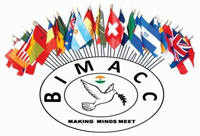
Why should Human Resources (HR) Professionals be trained in Mediation?
by Monika M
Workplace conflict is inevitable, it can either propel or disrupt the momentum of a department or the entire organization. Sometimes things get settled by themselves, many other times when tempers flare and resentment festers, HR needs to intervene before things get out of line. An increase in virtual communication during the COVID-19 pandemic has exacerbated workplace conflict. The probable consequences of failing to manage workplace conflict could be:
- Absenteeism: Unplanned absence could drive up employee costs due to the use of replacement associate costs. Overburdening other associates in the team may lead to high stress and a decrease in the overall employee performance.
- Turnover: When associates mistrust management, they tend to quit. This can lead to an increase in recruitment and training expenses of new hires. The department would be burdened until the new hire becomes fully proficient in their job.
- Unionization: When associates lose trust with the management, they tend to seek help from a third party to negotiate on matters such as compensation and employee benefits.
- Litigation: An associate who is unable to solve workplace conflict may seek outside legal help. This can cause the organization to spend huge costs for defence, expensive settlements, and may have an impact on goodwill.
Mediation is a confidential, informal, voluntary process that can be used for effective workplace conflict resolution. It can be used to resolve workplace conflicts like employee turnover, lack of respect among associates and decrease in associate morale.
HR professionals, based on the nature of their job (a representative of the employer), commonly find themselves as middlemen in solving employee disputes either in their official or unofficial capacity. They spend up to 20% of their time in litigation activities, most of which relate to conflict at the workplace. Workplace mediation is a potential solution that can use HRs and the management to resolve conflict. It is an approach that is gaining currency with HR departments. To drive a successful mediation, HR must have a nuanced understanding of employment legislation, business negotiation, and human relationships.
So what is Workplace Mediation and how can it be done?
An impartial trained mediator (HR / Manager) facilitates a voluntary and confidential discussion between those involved in a conflict at the workplace. The goal of mediation is to ensure the aggrieved parties attempt to resolve the dispute themselves, by making informed decisions. The mediator will neither impose an outcome nor force a settlement on the parties.
Why should HR be trained mediators?
HR professionals often act as the first point of contact for an aggrieved associate. During the initial stage, the associate might want to have a private conversation with HR. At this stage, HR may address complaints and even facilitate a discussion to that effect. There is always an option of a formal grievance being raised.
HR professionals need to understand when and how workplace mediation can be used to find a solution to the problem. This is something that they should always be aware of as they act not only as advisors for the employees but also for the management. An important question that arises is whether the HR advisors themselves should conduct the mediation. If the HR professionals are also trained mediators, who are independent, neutral and not interested in the parties, they may facilitate the discussion and this may be the most efficient and cost-effective way for the issue to be resolved. The HR advisor must assess the situation and consider two issues:
- Can mediation be an appropriate way to solve this problem?
- If yes, who would the best person, and where would be the best place to conduct this mediation?
In the long run, what everyone wants to see is a resolution to the problem. It is critical to engage with the concerned, lend an ear to their views, and mutually decide on the best approach.
-Monika M
Ms Monika is an NLP trained HR professional with over 4 years of experience in the creation and delivery of bespoke strategic initiatives. She has a master’s in human resource management and her interest lies in mastering Cognitive Behaviour. She is a certified Learning and Development Manager from Carlton Advanced Management Institute (CAMI) and is certified in Six Sigma from MSME Development Institute. Her interventions have expanded talents and skills across employees at all levels. She can be contacted at monika.muru@gmail.com .
Disclaimer: The views and opinions expressed in this blog are those of the authors and do not necessarily reflect the official policy or position of BIMACC, any of the members of the Board, or the empanelled neutrals.
